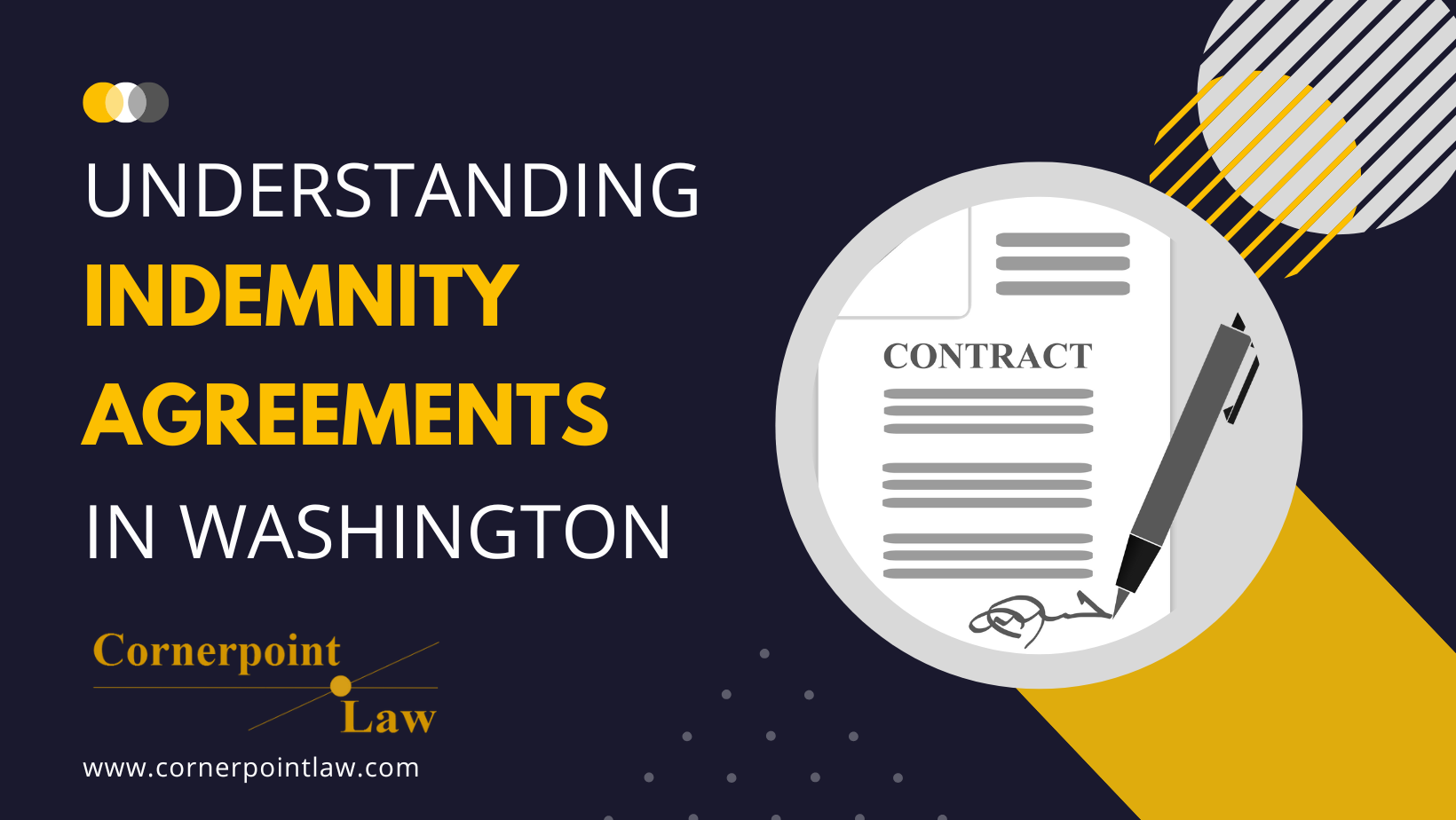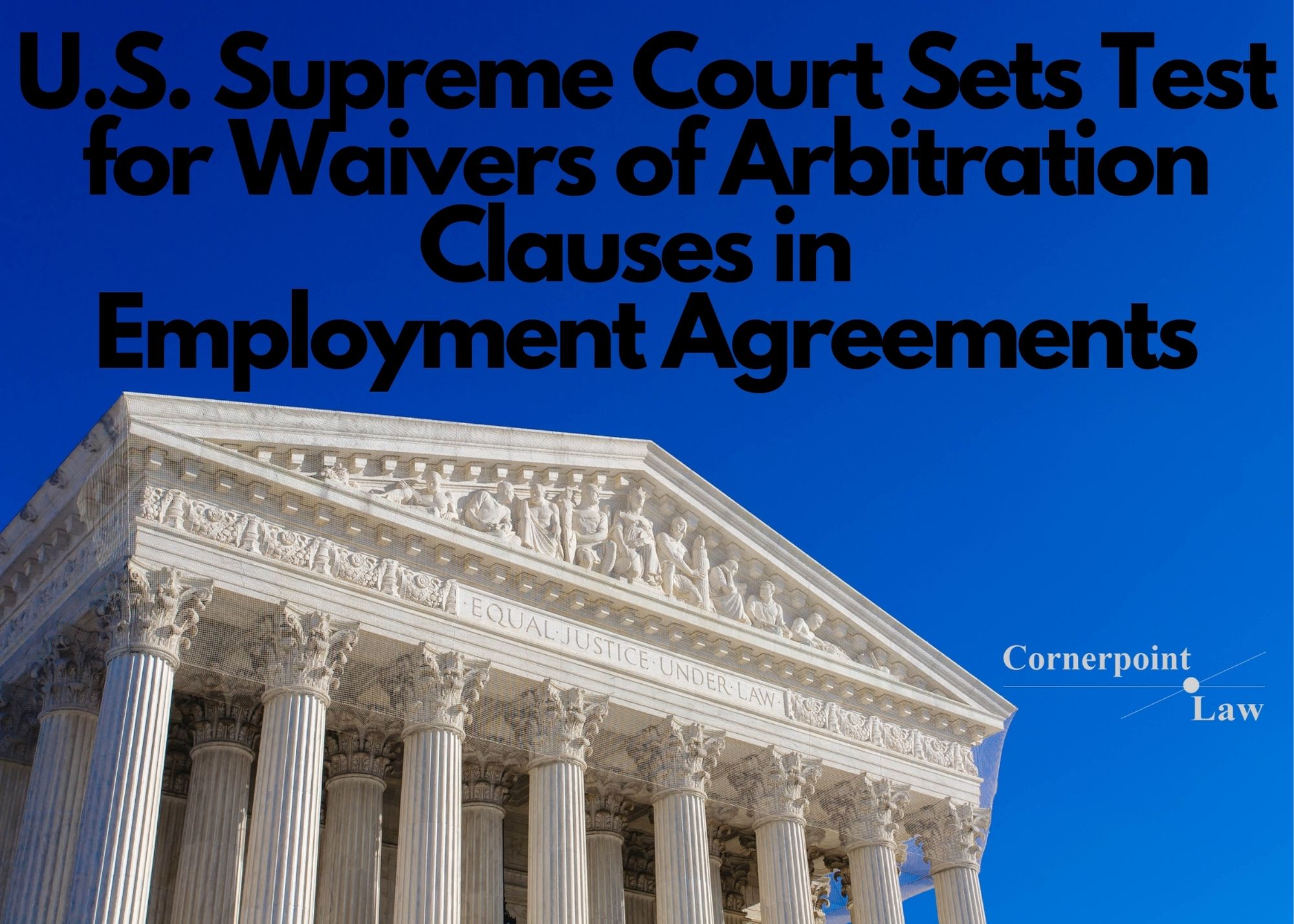Cornerpoint Case Pops: Non-Compete Agreements and Shared Clients
September 7, 2017
Unauthorized use and/or duplication of blogposts without express and written permission is strictly prohibited. Excerpts and links may be used, provided that full and clear credit is given, and with appropriate and specific direction to the original content.
The author of this post can be reached by phone at 206-693-2718 or by email.
Non-Compete Agreements and Shared Clients – Gaddis Events, Inc. v. Wu
By Stacia Hofmann
Cornerpoint Case Pops are dedicated to summarizing relevant, new cases — and their business and risk management lessons — in bite-size posts.
The Case: Gaddis Events, Inc. v. Wu, Washington Court of Appeals, Division I, No. 75227-8-1 (Unpublished)
When will a Washington court reject an employer’s request to prevent a former employee from performing certain work because of a non-compete agreement? On May 30, 2017, the Court of Appeals gave us an example: certain shared client relationships.
First, let’s sum up the players in this case:
- “Former Employer” – a corporate events service provider and the plaintiff in the lawsuit
- “Employee” – the defendant and an event coordinator who used to work for Former Employer
- “New Employer” – an international marketing firm
- “Client” – Microsoft U.S. Devices Team
A non-compete agreement between Former Employer and Employee was in effect for a period of two years following the end of Employee’s employment with Former Employer. It stated that during this time, Employee could not work in corporate events within 100 miles of Seattle and could not work for any of Former Employer’s clients.
Employee went to work for New Employer. At New Employer, she was assigned to work a roadshow for Client. Employee had also provided client services to Client while working for Former Employer.
Former Employer filed a lawsuit based on the non-compete agreement. It asked for an injunction – a court order stopping Employee from working for Client at New Employer.
The Court of Appeals refused to stop the Employee, and found the following facts key to its determination:
- The contract between New Employer and Client was entered into before Employee began working for New Employer.
- Former Employer did not bid on Client’s roadshow contract.
- Employee had no role in sales and solicitation at New Employer; she only provided event planning services.
The court agreed that Former Employer had legitimate interests in protecting its client relationships, its trade secrets, and its confidential information. However, the court disagreed that Former Employer had a legitimate interest in “preventing the competitive use” of Employee’s skills and qualities, even if Employee had received important training and experience at Former Employer. Why? Because Employee’s skills played no role in Client deciding to use New Employer for the roadshow (since the deal was entered into before Employee even started working for New Employer) and because Employee was not exploiting her knowledge of Former Employer’s client base.
Risk Management Lesson
As of today’s date, non-compete agreements are enforceable in Washington, but they are not without their limits.1 They must be validly formed and reasonable.
A Washington court will generally look at a non-compete agreement from three (usually conflicting) points of view:
1. The employer’s perspective: whether enforcement of the non-compete is necessary to protect its business and goodwill;
2. The employee’s perspective: whether the non-compete’s scope is so broad that it unreasonably restrains the employee’s ability to work; and
3. The public’s perspective: whether enforcing the non-compete will injure the public through loss of the employee’s services and skills.
Many businesses benefit from non-compete agreements, since limiting former employees’ use of confidential information, trade secrets, and customer relations are often vital to a business’s survival. In turn, a business’s health benefits its employees. But a reasonable scope of a non-compete for one employer may not be a reasonable scope of a non-compete for another. Additionally, non-disclosure, non-solicitation, and other key provisions may make a good non-compete agreement even stronger. Email or call me to see if Cornerpoint can help with your contract or employment law questions.
This blog is for informational purposes only and is not guaranteed to be correct, complete, or current. The statements on this blog are not intended to be legal advice, should not be relied upon as legal advice, and do not create an attorney-client relationship. If you have a legal question, have filed or are considering filing a lawsuit, have been sued, or have been charged with a crime, you should consult an attorney. Furthermore, statements within original blogpost articles constitute Stacia Hofmann’s opinion, and should not be construed as the opinion of any other person. Judges and other attorneys may disagree with her opinion, and laws change frequently. Neither Stacia Hofmann nor Cornerpoint Law is responsible for the content of any comments posted by visitors. Responsibility for the content of comments belongs to the commenter alone.
- This may not always be the case. The Washington legislature has expressed interest in limiting non-compete agreements in some form or another. See, for example, this news story. ↩




